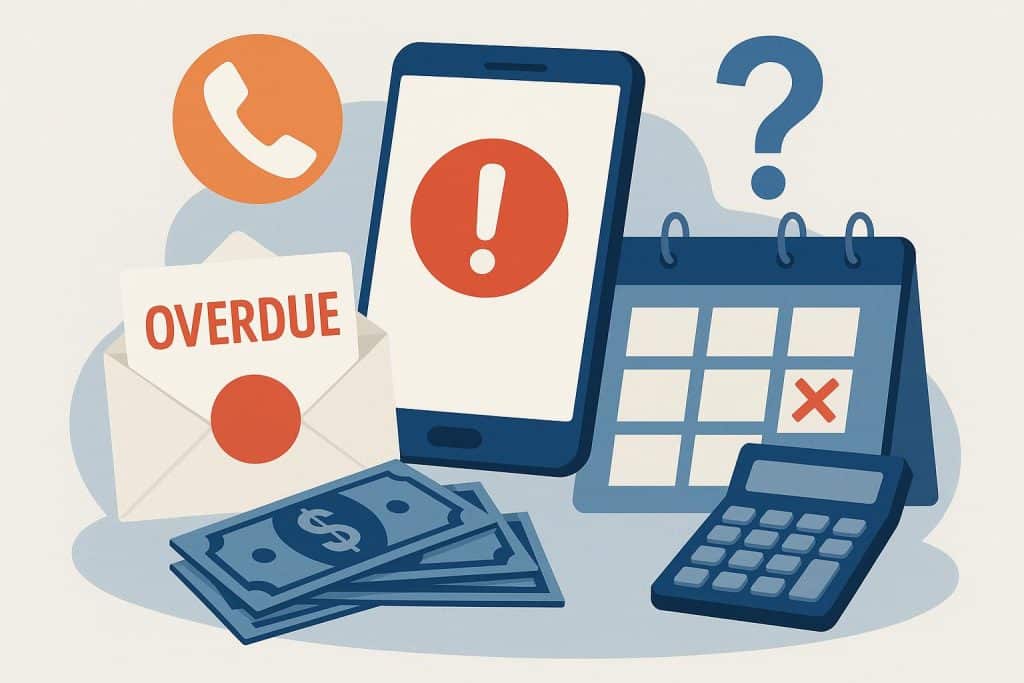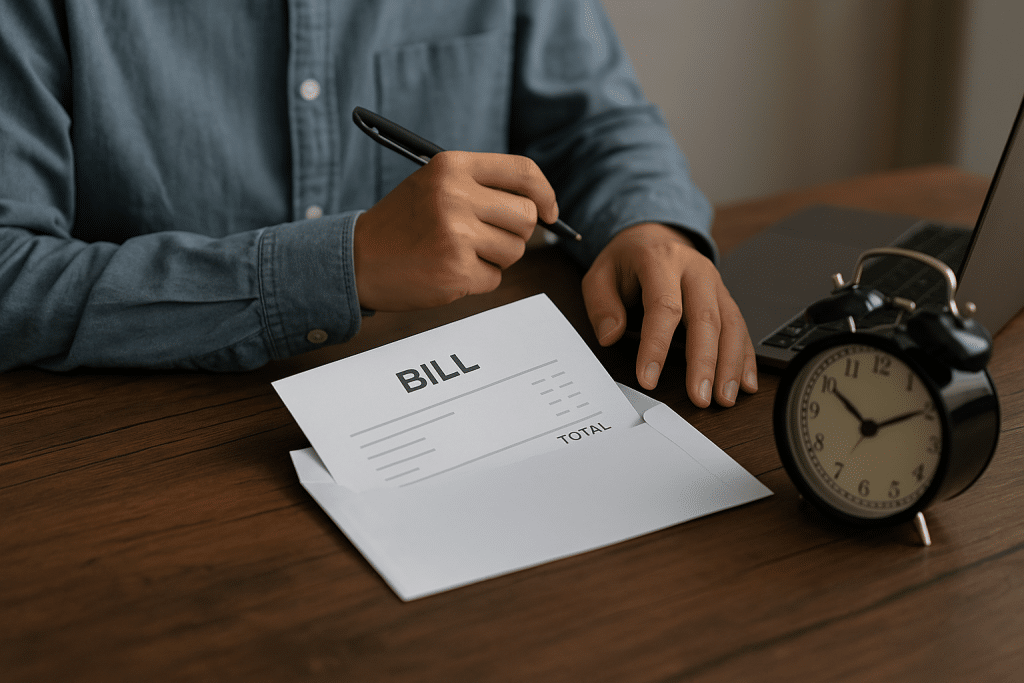So, you’re trying to buy something simple online. Maybe it’s a coffee, a game upgrade, or a last-minute gift. You go to pay with your phone, expecting it to be quick and easy, but instead, you get hit with a digital brick wall: DECLINED.
You check your bank account for plenty of cash there. You check your mobile spending limit—all good. What in the world is going on?
Well, you’ve likely just met the “policy” block. And here’s the kicker: it’s probably not even your phone company saying “no.” It’s a behind-the-scenes player, the payment agency, that’s decided to put your transaction on ice. This usually happens if there’s a history of unpaid bills or late payments connected to your name, sometimes from an old account you totally forgot about.
It feels confusing and unfair, but trust me, it’s not a dead end. There’s a smart, safe way around this. When a payment agency’s “policy” blocks you, you can team up with a registered small payment company to turn that blocked limit into actual cash you can use. Let’s break down why this happens and walk through the best way to handle it using “소액결제 현금화” (so-aek-gyeol-je hyeon-geum-hwa), or micropayment cashing.
The “Policy” Block: Meet the Bouncer of Your Digital Payments
First things first, let’s pull back the curtain on who’s actually involved when you pay with your phone. It’s not just you and your carrier.
Think of it like going to a cool club:
- Your Mobile Carrier is the club owner. They gave you a VIP pass with a spending limit.
- The Merchant is the bar where you’re trying to buy a drink.
- The Payment Agency is the bouncer at the front door.
Here’s the thing: even though the club owner (your carrier) gave you a pass, the bouncer (the payment agency) has their own list and their own rules. They’re the ones managing the risk, and they get the final say on who gets in.
So, when you read that the payment agency, not the mobile carrier, may block small payments through its own “policy,” that’s exactly what’s happening. The bouncer is looking at their list, seeing something that makes them nervous, and saying, “Sorry, not tonight.”
This “policy” is just their internal risk-management system. They use smart tech to look for patterns that might suggest a payment won’t be made. If your name has a history of unpaid phone bills, their system might flag you, even if your current account is perfectly paid up.
So, Why Did the Bouncer Stop You?
These blocks aren’t personal, they’re based on data. Here are the usual reasons the payment agency’s alarm bells might go off:
- Old Phone Bills Coming Back to Haunt You: This is the big one. If you ever had a phone bill with any carrier under your name that went unpaid for a while, it leaves a digital footprint. That red flag can follow you.
- You’re a Habitual Late Payer: Always pay your bill… eventually? Even if you catch up, a pattern of paying after the due date signals to their system that you might be a financial risk.
- Your Shopping Habits Look Fishy: Trying to spend your entire limit on easily-resold items like gift cards all at once can look suspicious to an algorithm designed to spot fraud.
- You’re the New Kid on the Block: If your phone account is brand new, the payment agency has no idea if you’re reliable. They might put you under a stricter policy just to be safe.
- One Bad Apple Spoils the Bunch: Got a few phone lines under your name? If one of them has a bad payment history, the negative mark can affect all of them in the payment agency’s system.
When you trigger one of these, you’re put under a “small payment policy.” That’s when you need a pro service for 소액결제 현금화 (micropayment cashing) to help you out.
The Game Plan: How to Safely Cash Out When You’re Blocked

Okay, so you’re blocked. Don’t panic! This is a solvable problem. Here’s your step-by-step game plan to work with an officially registered small payment company.
Step 1: Know What You’re Dealing With & Stay Cool
First, just take a breath. Understand that this is a common issue and there’s a safe way forward. Don’t keep trying the same payment over and over it can sometimes make the flag on your account worse.
Step 2: Pick Your Pro
This is the most important move you’ll make. You need to choose an officially registered company, not some random person on a forum. Look for:
- A professional, secure (HTTPS) website.
- Clear, upfront info about their fees and process.
- Proof that they’re a registered business.
- A good reputation with positive reviews.
A perfect example of what you should be looking for is FamilyPayBank. They’re a registered company known for being safe, fast, and totally transparent. No games, just good service.
Step 3: See What Your Options Are
Small payment companies are pros at this. They have a bunch of different digital products they can use to make the transaction work. You don’t have to worry about the details—they’ll guide you to the simplest option.
Step 4: Make the Move
The company will give you easy-to-follow instructions. It usually involves making a quick purchase using your mobile payment limit and then sending them the proof. Their system checks it in a flash.
Step 5: Get Paid!
And here’s the best part. Once everything is verified, the cash is sent straight to your bank account. Pro services like FamilyPayBank are all about instant deposits, so the whole thing is often done in less than 30 minutes.
Fun Fact: Your Phone Bill is Your New Report Card
This whole “policy” block thing is part of a bigger trend. A 2024 report from the World Bank actually talked about how financial tech companies are now using things like utility and phone bill payment histories to figure out if someone is financially reliable.
Basically, how you pay your phone bill is becoming a part of your “digital report card.” It shows why payment agencies are so careful they’re looking at this new kind of credit score. It also shows why we need legitimate “소액결제 현금화” (micropayment cashing) services. They provide a fair way for good people to get access to their funds, even if an algorithm unfairly locks them out.
Why Having a Go-To Partner like FamilyPayBank is a Game-Changer
When you’re stuck behind a confusing “policy” block, it can feel really stressful. That’s when you realize how important it is to have a registered and reliable partner like FamilyPayBank in your corner.
- They’re Your Safe Zone: In a world of potential online scams, they offer a secure and officially registered way to get your money. You’re working with a real business, not a ghost.
- They Make Things Clear: They’ll walk you through the process, so you’re not left in the dark. They bring transparency to a situation that feels anything but.
- You Can Trust Them: With a registered company, you know your information is safe and your money will show up as promised.
FamilyPayBank gives you back control when an algorithm tries to take it away, making the whole process of “소액결제 현금화” (micropayment cashing) something you can feel confident about.
Frequently Asked Questions (FAQ)
Q1: Is this “policy” block going to haunt me forever?
Good question! Not usually. It’s often temporary. Once you clear up old bills and show a pattern of on-time payments, the block can be lifted.
Q2: Why can the payment agency block me if my phone company is fine with me?
Because they’re two different businesses with two different sets of rules. The payment agency is the one taking the financial risk, so they’re often stricter.
Q3: Is 소액결제 현금화 (micropayment cashing) legal?
Absolutely, as long as you use an officially registered company. These businesses are totally above board.
Q4: What are the fees like?
Any legit company will charge a fee for the service, but they’ll be upfront about it. If you see an offer for a 90-100% payout, run! It’s a classic scam.
Q5: How do I stay off the bouncer’s bad list in the future?
Keep your financial report card clean! Pay your phone bills on time, every time, and try to clear up any old, unpaid bills floating around under your name.
Let’s Wrap This Up
Getting blocked from a small payment because of a “policy” is one of those annoying quirks of our digital world. Your payment history can cast a long shadow, locking you out of your own funds when you least expect it.
But it’s not a dead end. The solution is simple, safe, and works like a charm: using an officially registered small payment company for “소액결제 현금화” (micropayment cashing). They know how to handle these policies and can get you your cash right away. Just remember to avoid those too-good-to-be-true offers and stick with a trusted name. In this field, FamilyPayBank has proven time and again that they’re the go-to choice for a fast, safe, and reliable service.
My Two Cents: An Encouraging Insight to Help You Decide
Look, getting hit with a payment block can feel personal. It feels like some invisible system has judged you. But I want you to reframe how you see it. It’s not a punishment; it’s just a signpost at a crossroads, telling you it’s time to make a smart turn.
The digital world plays by its own rules, and a clean payment history is your golden ticket. A “policy” block is just a heads-up that your ticket has a smudge on it. But instead of getting frustrated, you get to be resourceful. The fact that professional services like FamilyPayBank exist is proof of that. They are the safe, paved road you can take when the main highway is closed.
So here’s my advice: don’t waste your time with shady deals from anonymous people online. That extra 1% they promise isn’t worth the 100% risk of getting scammed. The smartest move you can make is to choose certainty. Partnering with a registered, reputable company is you taking back control. It’s you saying, “I get how this works, and I’m choosing the safest, most professional route.” This is more than just getting cash, it’s about making a sound financial choice that keeps you secure. Be smart, be safe, and always choose the path that gives you peace of mind.
